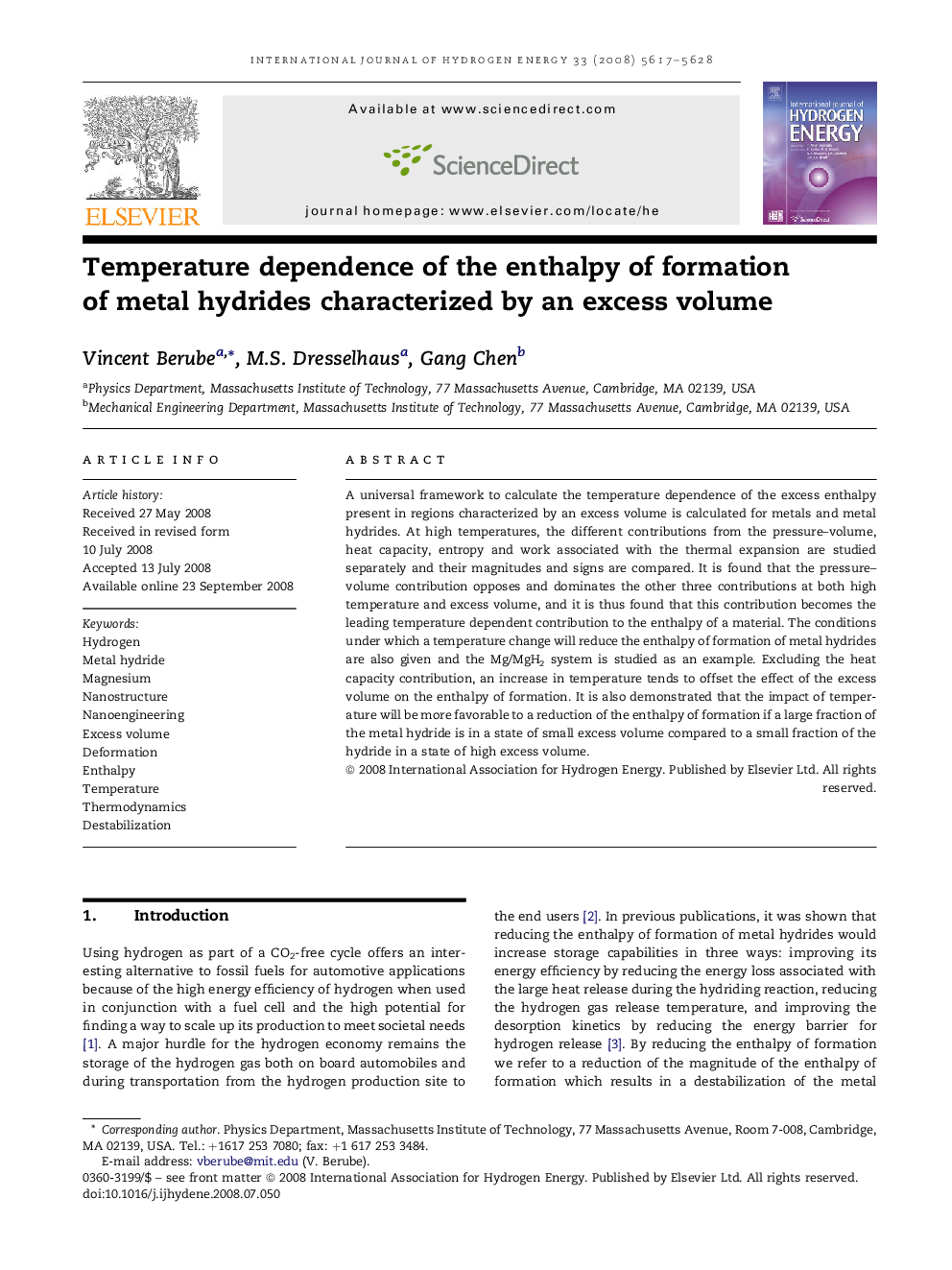| Article ID | Journal | Published Year | Pages | File Type |
|---|---|---|---|---|
| 1278500 | International Journal of Hydrogen Energy | 2008 | 12 Pages |
Abstract
A universal framework to calculate the temperature dependence of the excess enthalpy present in regions characterized by an excess volume is calculated for metals and metal hydrides. At high temperatures, the different contributions from the pressure-volume, heat capacity, entropy and work associated with the thermal expansion are studied separately and their magnitudes and signs are compared. It is found that the pressure-volume contribution opposes and dominates the other three contributions at both high temperature and excess volume, and it is thus found that this contribution becomes the leading temperature dependent contribution to the enthalpy of a material. The conditions under which a temperature change will reduce the enthalpy of formation of metal hydrides are also given and the Mg/MgH2 system is studied as an example. Excluding the heat capacity contribution, an increase in temperature tends to offset the effect of the excess volume on the enthalpy of formation. It is also demonstrated that the impact of temperature will be more favorable to a reduction of the enthalpy of formation if a large fraction of the metal hydride is in a state of small excess volume compared to a small fraction of the hydride in a state of high excess volume.
Keywords
Related Topics
Physical Sciences and Engineering
Chemistry
Electrochemistry
Authors
Vincent Berube, M.S. Dresselhaus, Gang Chen,
